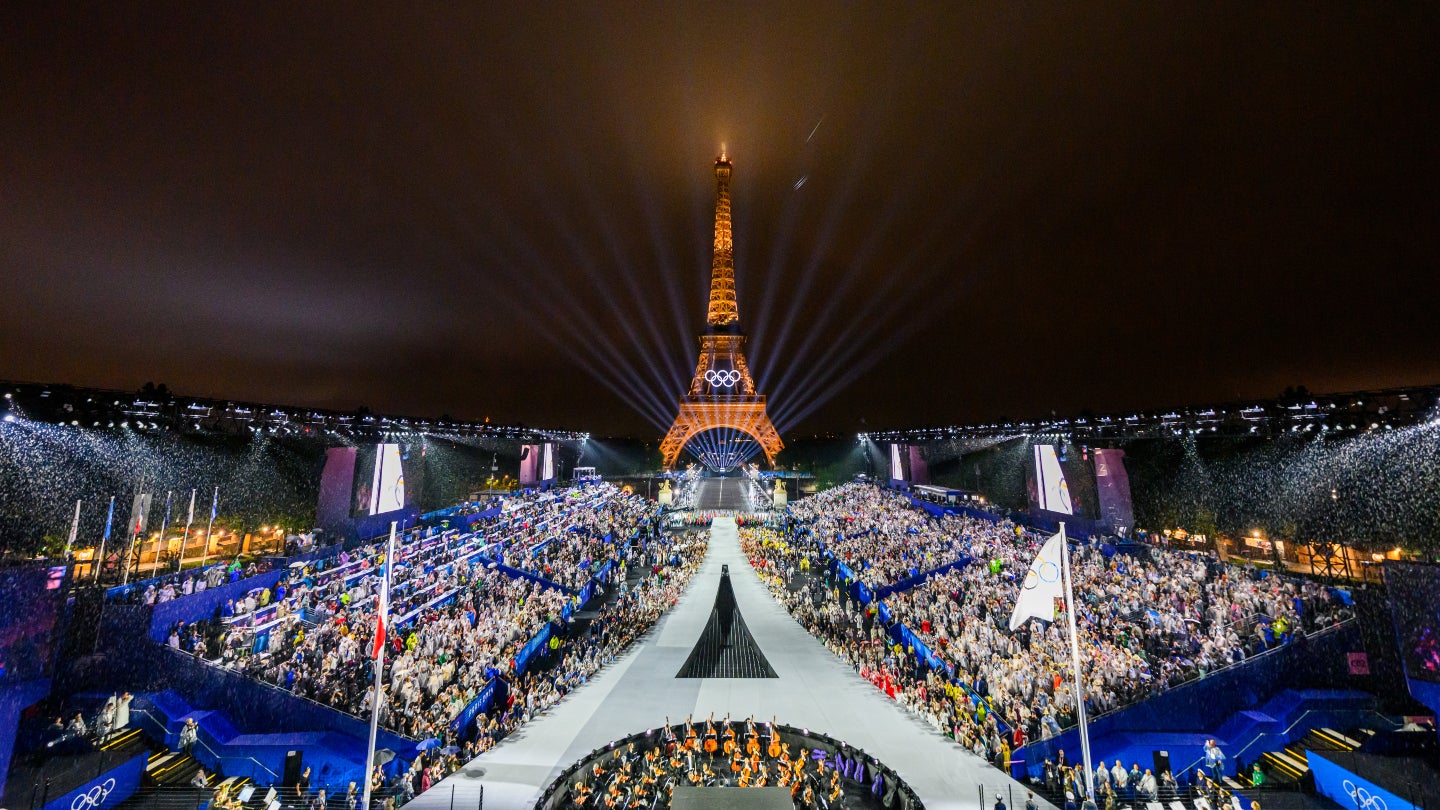The ongoing 2024 Olympic Games in Paris will not just determine who are the best athletes on the planet but also how successfully the city has met its goal of delivering the greenest-ever games.
The biggest green pledge touted by Paris 2024 has been the aim to cut carbon emissions in half compared to emissions records for the London and Rio Olympics.
“Mega-events are exceedingly difficult and costly to organise and host,” Conrad Wiacek, head of analysis at GlobalData Sport tells Sportcal. “So, any organising committee that is taking steps to minimise the impact of the event should be applauded.”
The International Olympic Committee (IOC) has put sustainability front and centre for host cities.
Speaking to Sportcal, Marie Sallois, the IOC’s director for sustainability, explains: “As an organisation, as owners of the Olympic Games and as leaders of the Olympic Movement, we need to address our footprint to act responsibly for our societies and to protect the future and existence of the world of sport.”
What’s new?
Events on the scale of the Olympics often have significant scope 1, 2 and 3 emissions associated with them, driven by the construction of venues, accommodation and travel for both athletes and audiences.
Underpinning the efforts for a sustainable Olympic Games is the Olympic Agenda 2020 - a set of 40 recommendations aimed at safeguarding the Olympic values and strengthening the role of sport in society. The three pillars that act as a foundation of the agenda are credibility, sustainability and youth.
Sallois says that the Olympic Agenda 2020 “integrates sustainability into every aspect of the planning and staging of the games”.
A key way in which Paris 2024 has reduced the games’ carbon output is by using 95% preexisting structures and ensuring that 90% of the games’ assets have a contractually guaranteed afterlife. This is an effort to address the fact that many venues constructed for previous games have been left unused once they finished.
For the few venues being built and the temporary installations, there has also been an emphasis on using low-carbon building materials for the construction, as well as ensuring temporary venues do not harm biodiversity.
Other green measures outlined in the Paris 2024 Sustainability & Legacy Pre-Games Report Summary include the use of 100% renewable energy, a doubling of plant-based food on menus and a 50% reduction of single-use packaging for food and drinks. The organisers have also ensured there is low-carbon transportation for athletes and spectators once they arrive in Paris and have called on visitors to use low-carbon modes of transport to travel to France.
Sallois notes that the delegations from Germany, Belgium, Great Britain, the Netherlands and Switzerland all travelled by train to France.
Benefitting the host city
Paris 2024 has also sought to consider how hosting the games can benefit a city and accelerate the construction of green infrastructure.
“Historically, it was the hosts who adapted to the games,” Sallois explains. “Today the aim is to stage games that adapt to the social, economic and environmental needs of the host country and to leave a lasting positive legacy that will benefit generations to come.”
Speaking to the Guardian recently, Emmanuel Gregorie, former deputy mayor for urban planning, said of Paris: “We saw the Olympics as a great opportunity to accelerate the city’s green transformation.”
Sallois describes the games as a “catalyst” to progress sustainable transport options.
“The Paris 2024 organisers have structured the games to leverage an extensive existing public transport network, to be reinforced by more than 400km of bike lanes,” she says. “More than 80% of the Olympic venues are situated within 10km of the Olympic Village, minimising travel time for athletes.”
Accountability
To help guide the hosting of the games is the event sustainability management system ISO 20121. Sallois explains that, while initially pioneered for the London 2012 games, it has recently been revised with a wider scope to address impact, legacy, human rights, climate action and accessibility.
She adds that, since 2021, the IOC has collaborated with the Organisation for Economic Co-operation and Development and Paris 2024 to create key performance indicators for assessing the long-term impact of the games.
When asked how host cities are held accountable for their sustainability pledges, Sallois says that Olympic hosts are via a combination of international processes set by the IOC, external reporting, global sustainability standards and public scrutiny.
She adds that hosts are required to produce detailed sustainability reports, which are then independently verified by external parties.
Future games and sustainability
Looking forward to future editions, Wiacek notes that the next Olympic host city, Los Angeles, has already pledged to use pre-existing venues to host the games.
Sallois also emphasises that sustainability now plays a role in cities' bid to host, describing it as “central to the dialogue phases with future hosts.”
Reflecting on the sustainability of the Games going forward, Wiacek comments: “These efforts must be a long-term focus for all hosts – there is no point awarding the games to Paris and LA and for sustainability to be the focus only for Brisbane and then potentially cities in India and Saudi Arabia to go ahead and develop a host of new venues at great expense.
“The long-term aim of the games must be focused on how to develop mega-events in areas that leave long-term, tangible benefits. The games in Barcelona and Athens failed to do this and the legacy of that is still evident today, so this must be a sustained long-term vision.”








